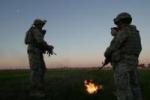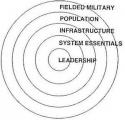In a recent Foreign Policy article, Gustavo de las Casas contends Destroying al Qaeda is not an option, yet. This discussion is found in different threads throughout SWC, and Mr. Casas makes a compelling case to keep them around.
I really enjoyed his article, but I'm still not swayed. My rebuttal goes back to the fundamentals of insurgency theory relying mainly on Mao's protracted war. Insurgencies and terrorist groups need several things:The old al Qaeda is no more. At least 40 percent of its leadership circa 2001 has either been killed or captured. New faces have fared no better; since July 2008, 11 of the organization's 20 most wanted have been put out of commission. And middle management is almost gone, many of them victims of Predator strikes. What remains is probably a hollow organization, represented by a core of insulated figureheads, such as Osama bin Laden and Ayman al-Zawahiri, surrounded by eager cadres of jihadist newcomers. Before long, the West may just hold a barrel to al Qaeda's collective forehead. Should it press the trigger?
Gut instinct and righteousness scream "yes!" But a better answer might be "not yet." The world would be wise to keep al Qaeda alive, paradoxically enough, for security reasons. Like it or not, keeping a battered al Qaeda intact (if weak) is the world's best hope of funneling Islamist fanatics into one social network -- where they stand the best chance of being spotted, tracked, and contained. The alternative, destroying the terrorist group, would risk fragmenting al Qaeda into thousands of cells, and these will be much harder to follow and impossible to eradicate. It's the counterterrorist's dilemma, and the only real choice is the least unsavory: Al Qaeda must live.
1. Ideology- something to validate their worldview and actions
2. People- technical bomb experts, grunts, suicide bombers, etc
3. Guns
4. Money
If AQ fractures, then funding sources, recruiting bases, technical skills, and support networks and infrastructure decline thus diminishing the capabilities of follow-on organizations. Moreover, competition amoungst groups would cause additional infighting and diminished capabilities.
That's my take. Any thoughts?
Mike








 .
.

Bookmarks